Greek Beverages: Basic Overview
Common Ingredients
Common Preparing Methods
Key Taste
Drinking Etiquette
Culinary Festivals
Influence and Fusion
Classifications of Greek Beverages
-
Alcoholic Beverages
Greek alcoholic beverages are deeply traditional, using local fruits, herbs, and age-old distillation and fermentation methods.
These range from spirits made from grape pomace to unique wines and dessert wines, highlighting Greece’s cultural and geographical diversity.
Essential to celebrations and social events, they showcase Greek hospitality and culinary depth through various flavors and techniques, including aging and blending with local botanicals.
-
Non-alcoholic beverages
Greek non-alcoholic drinks include herbal teas, various coffee preparations, and fruit syrups, reflecting Greece’s rich natural and cultural heritage.
Traditional Greek coffee and iced variations emphasize the social aspect of coffee drinking.
Herbal teas and homemade fruit syrups highlight the preference for natural, refreshing beverages, valued both for their flavors and health benefits, integral to the Greek lifestyle and hospitality.
Greek beverages are famous drinks that are commonly enjoyed in Greece, a country known for its rich culinary traditions and historical significance. These beverages range from traditional alcoholic drinks to unique fruit drinks and ancient concoctions.
In the realm of traditional drinks, Greece has a variety of offerings that include spirits and wines enriched with natural ingredients and flavors.
Congeners, substances produced during the fermentation process, play a significant role in the taste and aroma of these alcoholic beverages. They contribute to the distinctive characteristics of drinks like brandy, rum, and red wine, which are enjoyed for their rich and complex flavors.
In addition to exploring renowned Greek drinks, you can delve into the customary Greek drinking practices, the worldwide acclaim of Greek beverages, and the culinary dishes that complement Greek drinks.
Savor the taste of tradition – dive in now!
21 Most Popular Greek Beverages with Filters
Dive into the world of Greek drinks with our friendly guide, showcasing 21 of the most cherished beverages from Greece, arranged by how much people love them.
This list comes with handy filters to help you pick your perfect drink based on how popular it is, what’s in it, how it tastes, and how to make it. You can also apply filters to select traditional, national, street beverages, exotic or fusion.
Metaxa
- Alcoholic
- Traditional
Metaxa is a renowned Greek liquor that embodies the rich tradition of Greek alcoholic beverages. It is a distinctive amber spirit, blending brandy with the sweetness of Muscat wines, which are then aged in oak barrels to achieve its unique flavor profile.
This drink, which comes in various expressions such as Metaxa 5 stars, Metaxa 7 stars, and Metaxa 12 stars, among others, showcases the depth and diversity of Greek distilling craftsmanship.
Ouzo
- Alcoholic
- National
- Traditional
Ouzo is a traditional Greek aperitif known for its dry, anise-flavored profile. It is a national drink of Greece, deeply embedded in the country’s culinary culture.
Ouzo is typically produced through a precise distillation process, often from grape must or other agricultural sources, and is flavored predominantly with anise, though other botanicals like fennel, mastic, and coriander may also be included.
This results in its characteristic licorice taste, which is similar to other anise-based spirits like pastis and sambuca.
Ouzo is traditionally served with water, turning it cloudy white, and often accompanied by small plates of appetizers known as mezes. The drink has several regional variations, with some of the most famous being Ouzo from Lesbos and Ouzo Tyrnavou.
Tsipouro
- Alcoholic
- Traditional
Tsipouro is a traditional Greek spirit, notable for its strong flavor and alcohol content of 40-45%. Originating from regions like Thessaly, Epirus, Macedonia, and Crete (where it’s called tsikoudia), it’s made from grape pomace.
Tsipouro comes in two varieties: pure and anise-flavored, and while it’s usually unaged, there are aged versions akin to whiskey. Its history dates back to the 14th century, with monastic origins on Mount Athos.
Tsipouro is integral to social gatherings in Greece, often served with meze, and has been recognized with a Protected Designation of Origin (PDO) status by the EU.
Greek Beer
- Alcoholic
- Traditional
Greek beer, with roots in the Bronze Age, became prominent in the modern era starting in 1864 with the establishment of the first brewery. Despite Greece’s deep-rooted wine culture, beer has gained popularity and become a significant part of the economy.
The Fix brewery, founded in 1864 in Athens, was a pioneer, leading to the growth of the beer industry. Today, Greek beer, including brands like Mythos, is widely available domestically and internationally, showcasing the evolution of Greek brewing.
Retsina
- Alcoholic
- Traditional
Retsina is a traditional Greek resinated wine that has been produced for over 2,000 years. It is characterized by its unique flavor, which comes from the addition of Aleppo pine resin during the fermentation process.
This practice dates back to ancient times when wine vessels were sealed with pine resin to prevent spoilage. Although the necessity for resin diminished with the advent of impermeable glass bottles and barrels, the distinct taste of retsina remained popular.
Today, retsina is made primarily from the Savatiano grape, with Assyrtiko and Rhoditis sometimes blended in. It is often enjoyed with local cuisine, especially mezes.
The European Union recognizes retsina as a protected designation of origin and traditional appellation for Greece and parts of southern Cyprus.
Assyrtiko
- Non-Alcoholic
- Traditional
Assyrtiko, also known as Asyrtiko and Assirtico, is a white grape variety native to Santorini, Greece. This grape is particularly noted for its ability to maintain high levels of acidity even when fully ripe, making it quite distinctive.
Assyrtiko is widely cultivated in the arid, volcanic-ash-rich soil of Santorini and has also found a home in other Aegean islands like Paros, as well as in scattered regions across Greece including Chalkidiki.
Beyond its native land, Assyrtiko has been embraced internationally, with vineyards in places like California, South Australia, and North Carolina cultivating this variety.
Traditionally, Assyrtiko is known for producing dry white wines that exhibit a unique mineral profile, thanks to the volcanic soil of Santorini. These wines are often characterized by their citrus and mineral nuances, making them excellent companions to grilled fish and meats.
In addition to dry wines, Assyrtiko is sometimes used to create sweet, Vinsanto-like dessert wines that are musky and syrupy. It is also blended with other grapes, such as Savatiano in Retsina, to balance acidity and add complexity
Agiorgitiko
- Alcoholic
- Traditional
Agiorgitiko, also known as Aghiorghitiko, Mavro Nemeas, St. George, is a traditional red Greek wine grape variety. It is the most widely planted red grape in Greece, particularly prevalent in the Nemea region of the Peloponnese, but also found throughout the country.
This grape is known for producing wines that range from soft to very tannic, depending on the cultivation and winemaking processes. Agiorgitiko wines are often characterized by their spicy and plum notes, with a low acidity but a good level of fruitiness.
The wine made from this grape in Nemea is sometimes referred to as the “Blood of Hercules,” linking it to ancient Greek mythology and suggesting its historical significance.
The name “Agiorgitiko” itself translates to “St. George’s grape,” hinting at a possible connection to the chapel of Saint George in Nemea or to Saint George’s Day, which is celebrated around harvest time in some Eastern Orthodox Churches.
Vinsanto
- Alcoholic
- Traditional
Vinsanto is a traditional sweet dessert wine from Greece, particularly associated with the island of Santorini. It is made from white grapes that are sun-dried to concentrate their sugars and flavors before fermentation.
This process results in a wine with rich, complex flavors and a high level of sweetness. Vinsanto can be aged for many years, during which it develops deeper flavors and a more intense color.
It is often enjoyed as a dessert wine and is a key part of Greece’s winemaking heritage. Vinsanto may also be found in variations that include different grape blends, but the classic version from Santorini is the most renowned.
Frappe
- Non-Alcoholic
- Traditional
Frappe, also known as Greek frappé, is a traditional iced coffee beverage from Greece. It is typically made by blending or shaking spray-dried instant coffee with water, and often sugar and milk are added to taste.
The drink is known for its frothy top layer and is usually served cold with a straw. Frappe became popular in Greece and Cyprus and is a symbol of Greek coffee culture, especially in outdoor settings.
It was accidentally invented in 1957 by a Nescafe representative in Thessaloniki.
Espresso Freddo
- Non-Alcoholic
- Fusion
- Street Beverages
Espresso freddo is a modern, cold version of espresso that has gained popularity in Greece. It is considered a higher-quality alternative to the traditional frappe.
Espresso freddo is made by blending a shot of espresso with ice until a frothy texture is achieved, and it is often served without milk to highlight the espresso’s flavor.
This beverage is part of the contemporary Greek coffee scene and reflects the fusion of traditional coffee culture with modern preferences for espresso-based drinks.
Tsikoudia
- Alcoholic
- Traditional
Tsikoudia is a traditional Cretan spirit, distilled from grape pomace left over from winemaking. This clear, strong beverage, often reaching an alcohol content between 40% to 65%, is deeply rooted in the island’s cultural practices.
Each village in Crete typically has its own distillers, making tsikoudia a communal affair, especially during its production period in late autumn.
While it shares similarities with other Mediterranean spirits like grappa and tsipouro, tsikoudia is unique to Crete and often served chilled as a digestif, frequently accompanied by fruits or sweets in tavernas. It’s not just a drink but a symbol of Cretan hospitality and warmth.
Mastika
- Alcoholic
- Exotic
- Traditional
Mastika, also known as mastiha, is a traditional Greek liqueur flavored with mastic, a resin obtained from the mastic tree, which is native to the Mediterranean region. This beverage is particularly associated with the Greek island of Chios, where the mastic resin is harvested.
Mastika is recognized for its unique, slightly pine or cedar-like flavor, which comes from the mastic resin, making it a distinctive product of Greek cuisine.
Mastika is often enjoyed as a digestif, served cold, and is known for its sweet taste and aromatic qualities. It is a traditional drink, with its production and consumption deeply rooted in Greek culture and history.
The liqueur is protected by a “protected designation of origin” status within the European Union, highlighting its cultural and geographical significance.
Rakomelo
- Alcoholic
- Traditional
Rakomelo is a traditional Greek mixed alcoholic drink known for its warming qualities and medicinal use, particularly as a home remedy for sore throats and coughs.
This beverage combines raki or tsipouro, both grape pomace brandies, with honey and a variety of spices such as cinnamon and cardamom, embodying the rich tapestry of Greek culinary traditions.
Originating from Crete and other Aegean islands, as well as the Greek mainland, rakomelo is primarily consumed in the colder months, served warm to provide comfort and warmth.
It is available in bottled form, ready to be enjoyed, and is a testament to the Greek tradition of infusing spirits with natural flavors.
While rakomelo typically features cinnamon as its primary spice, variations like baked raki from the island of Amorgos include a broader range of spices and are served at room temperature, showcasing the diversity within Greek alcoholic concoctions.
Kitron
- Alcoholic
- Exotic
- Traditional
Kitron, a traditional Greek liqueur, originates from the island of Naxos. It is crafted from the fruit and leaves of the citron tree, a relative of the lemon but with a more robust and distinct flavor profile.
Kitron is celebrated for its three main varieties: the green, which is sweeter and lower in alcohol; the yellow, known for its strength and minimal sugar content; and the clear, which strikes a balance between the two.
This beverage, which saw a surge in popularity in the early 1980s, is now primarily found on Naxos due to the limited availability of citron trees. The first distillery to produce Kitron was established in 1896 in the village of Halki on Naxos.
Tentura
- Alcoholic
- Traditional
Tentura, hailing from the city of Patras in Greece, is a liqueur steeped in history since the 15th century.
Tentura is a blend of brandy, rum, or grain alcohol with a concoction of spices like cinnamon, cloves, nutmeg, and citrus fruits (such as oranges and lemons). These ingredients give it a distinctive dark orange-red hue.
Known for its aromatic and warming qualities, tentura is typically enjoyed as a digestif, served chilled or at room temperature, and is a popular addition to coffee, known as espresso corretto.
Its name, derived from the Italian ‘tinctura’, hints at its rich blend of flavors and its role in Greek culinary tradition as a cherished after-meal drink.
Tsai Tou Vounou
- Non-Alcoholic
- Traditional
Tsai Tou Vounou, also known as mountain tea, shepherd’s tea, or ironwort, is a traditional herbal beverage of Greek cuisine. It is made from the dried flowers, leaves, and stems of the Sideritis plant, which grows at high elevations in the Mediterranean region.
This tea is not only cherished for its aromatic and healing properties but also forms an integral part of Greek herbal medicine.
There are several famous variations of Tsai Tou Vounou, including Sideritis scardica, Sideritis clandestina, and Sideritis syriaca, each offering a unique flavor profile. This tea is a staple in the daily lives of many Greeks, enjoyed for its soothing effects and health benefits.
Visinada
- Non-Alcoholic
- Street Beverages
- Traditional
Visinada is a popular Greek beverage made from sour cherry juice and sugar, cooked into a thick syrup. The sour cherries, not usually eaten raw, are mashed and strained to extract their juice, which is then sweetened and boiled.
The resulting deep purple syrup is mixed with water or club soda and served over ice, offering a refreshing taste especially favored in the summer. While commercial versions exist, the homemade syrup, often found in traditional tavernas, is prized for its authentic, rich flavor.
Soumada
- Non-Alcoholic
- Exotic
- Traditional
Soumada, also known as soumádha in Greek, is a traditional beverage of Greek cuisine, particularly popular in Cyprus and the Greek islands of Chios and Nisyros.
This drink is a sweet syrup made from almonds, and it is known for its refreshing and delicate flavor. Soumada has a rich history dating back to at least the Roman period in Cyprus, highlighting its long-standing cultural significance.
It was even presented as an exotic delicacy by King Peter I of Cyprus to King Casimir the Great of Poland in the 14th century. The beverage is celebrated for its versatility and can be enjoyed in various flavors, including traditional almond, banana, mango, and pistachio, among others.
Ayran
- Non-Alcoholic
- Traditional
Ayran is a traditional, savory yogurt-based beverage that is widely consumed in various parts of the Mediterranean, Middle East, and Central Asia, including Greece. It is made by mixing yogurt with water and a pinch of salt, resulting in a refreshing and cooling drink.
Ayran is often associated with providing relief during hot weather and is commonly served with grilled meats and rice dishes. While it is a simple drink with few variations, its popularity spans across many countries, each adding a slight regional twist to the basic recipe.
Limniona
- Alcoholic
- Traditional
Limniona, also known as Kalabaki, Kalambaki, and several other synonyms, is a traditional Greek wine made from the Limnio grape, which is indigenous to the island of Lemnos.
This grape variety is one of Greece’s most important red vines and has a long history that may extend back to Ancient Greece. It was possibly the variety described by Aristotle as producing the famous red Lemnian wine.
Today, Limniona is produced in various regions of Greece, including near Mount Athos and in the Drama wine region of Macedonia. It is known for its full-bodied wines with moderate tannins and acidity, and a distinctive mineral aroma.
When blended, Limniona adds color, weight, acidity, and an herbal aroma to the wine, making it a versatile grape for winemaking.
Ellinikos
- Non-Alcoholic
- Street Beverages
- Traditional
Ellinikos, also known as Greek coffee, is a traditional beverage integral to Greek culture. Originating from Yemen and popularized in Greece during the Ottoman era, it is known for its unique boiling method of preparation in a special pot called ibrik or briki.
This process, using finely ground Arabica beans, enriches the coffee with a strong flavor and health-beneficial compounds like antioxidants and polyphenols, which are linked to cardiovascular protection and longevity.
Greek coffee is not just a drink but a social experience, deeply embedded in Greek daily life and hospitality.
Which Dishes to Pair with Greek Beverages?
Here’s how Greek beverages can be paired with various dishes:
Each pairing is designed to complement the flavors and textures of famous Greek dishes, creating a harmonious and enjoyable meal.
However, if you have the chance to, you should try all these drinks out while eating the local delicacies and enjoying the scenery of Greece. Trust me, they will taste much better this way.
Do you have any questions about this post? Let me know in the comment section below. Remember to show your support by liking and sharing this post if you have time. Thank you, goodbye, and I’ll see you in the next article!















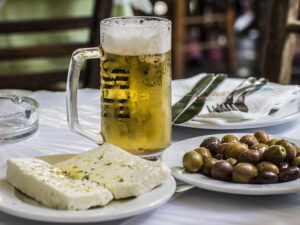
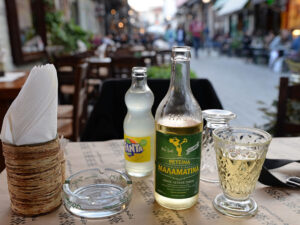
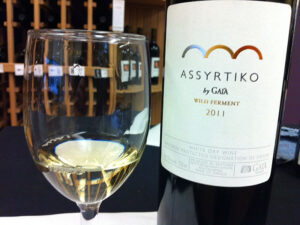
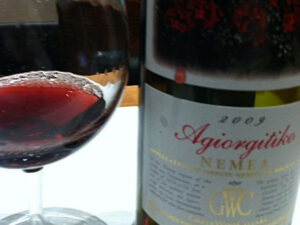






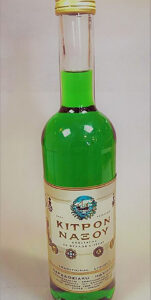
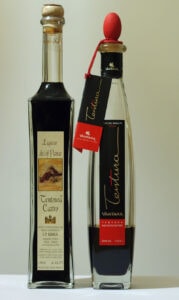




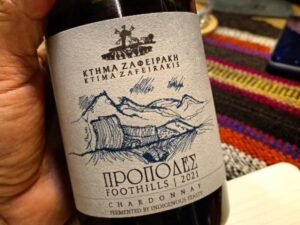


Jamie Scott
Editor in Chief, Senior Content Writer
Expertise
Home Cooking, Meal Planning, Recipe Development, Baking and Pastry, Food Editor, Cooking-video Maker, Western Food Evaluation Expert
Education
Le Cordon Bleu College of Culinary Arts
Local Community College, New York, NY
Jamie Scott is a skilled culinary expert and content creator specializing in Western cuisine. With over 15 years in the culinary field and formal training from Le Cordon Bleu, Paris, Jamie deeply understands how to blend nutrition with delicious flavors. His passion for cooking matches his commitment to making healthy eating accessible and enjoyable.
On Fifteen.net, Jamie brings a fresh perspective to classic dishes and beverages, offering readers insightful recipes, cooking tips, and a fresh view on meal planning that emphasizes taste, health, and simplicity.